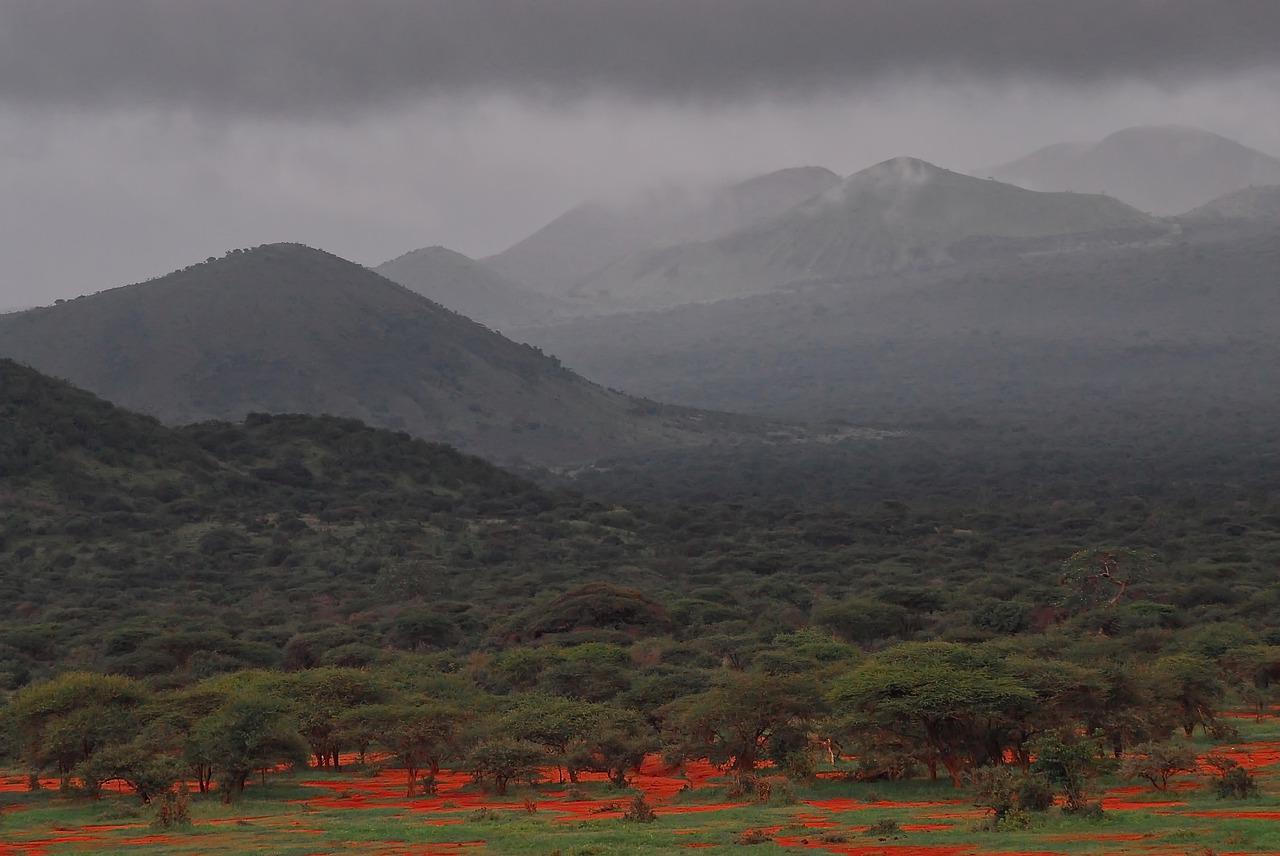Image by Alex Strachan from Pixabay
Fall is here, so let’s look at some vocabulary and expressions that will come in handy this time of year. As you know, the climate in Swahili speaking countries does not have the same typical four seasons that Europe and North America experience, so a lot of what you may associate with fall is not common in East Africa. The expression majira ya kupukutika kwa majani literally means “the season when leaves drop/die off/fall.” Kenya and Tanzania also have a season called vuli, which is a short rainy season from about November through January.
Rangi Colors
Majani Leaves and rangi nzuri beautiful colors are probably two of the first things that you think about when you think of fall. majani nyekundu red leaves, majani ya machungwa orange leaves, majani ya njano yellow leaves, majani ya dhahabu gold leaves are everywhere at first, and then majani ya kahawia huanguka kwa ardhi brown leaves fall to the ground. Here is some leaf-peeping vocabulary in Swahili.
- Majani yanabadilisha rangi.
The leaves are changing color. - Miti inapendeza wakati huu wa mwaka.
The trees are beautiful this time of year. - Kilima chote ni dhahabu.
The whole hillside is gold. - Majani yanaanguka kutoka kwa miti.
The leaves are falling off the trees.
Kunazidi kuwa na baridi. It’s getting colder.
Hali ya hewa baridi. Cool Weather is probably the other thing that you first think of when you think of fall. If you live in a place where the seasons change a lot, you may want to say:
- Hali ya hewa ni baridi.
The weather is cool. - Kuna mvua na mawingu.
It’s rainy and cloudy. - Siku ni za baridi kali na usiku baridi.
The days are chilly and the nights are cold. - Upepo unapeperusha majani.
The wind is blowing the leaves. - Anga ni kijivu.
The sky is gray.
Siku zinazidi kuwa fupi. The days are getting shorter.
With shorter fall days, you may want to say:
- Wakati wa akiba ya mwangaza wa mchana ni lini?
When is daylight savings time? - Ulikumbuka kurudisha saa yako nyuma?
Did you remember to turn your clock back?
(Note though that daylight savings is not practiced in East Africa, or in most places outside of North America and Europe.) - Kunakuwa giza mapema.
It gets dark early. - Jua huzama mapema.
The sun sets early. - Kuna mwanga mdogo wa jua.
There’s less sunlight.
Nguo za msimu wa vuli. Autumn/Rainy Season clothes
All of these fall changes probably mean a change in your wardrobe, too.
- Sihitaji makaptura yangu na mashati.
I don’t need my shorts and tee shirts. - Ninavaa sweta.
I’m putting on a sweater. - Nahitaji kuvaa jaketi.
I need to wear a jacket. - Nahitaji kuvaa kofia na koti ya mvua.
I need to wear a hat and a raincoat. - Wapi mwavuli wangu?
Where’s my umbrella? - Wacha tuweke blanketi zaidi kwa kitanda.
Let’s put an extra blanket on the bed.
Jioni tulivu, nyamavu. Calm, Quiet Evenings
Many people find fall to be the most relaxing season, and other people find it to be a bit sad.
- Nitashinda usiku wa leo.
I’m staying in tonight. - Ninasoma kitabu kizuri leo usiku.
I’m reading a good book tonight. - Ninakunywa kikombe cha chai.
I’m drinking a cup of tea. - Mimi huenda kitandani mapema majira ya majani ya kupuputika.
I go to bed earlier in the fall. - Huwa nina huzuni majira ya majani ya kupuputika.
I always get sad in the fall. - Nakosa jua na siku ndefu za kiangazi.
I miss the sun and the long days of summer. - Majira ya kupukutika kwa majani hunihuzunisha.
Fall depresses me.
Whether you say Napenda majira ya kupukutika kwa majani; ni msimu ninaopenda. I love fall, it’s my favorite season! or Sipendi majira ya kupukutika kwa majani ni giza na baridi pia inahuzunisha. I don’t like fall, it’s dark and cold and depressing, we wish you a happy and healthy season.
Do you want to learn Swahili?
Check out our other posts on Swahili language, culture, and more. And if you’re looking for convenient and affordable live Swahili lessons with a real teacher, check out The Language Garage Swahili. Our lessons are given online in a virtual classroom, so it doesn’t matter where you live or work. We can come to you. And we have flexible options, with a free trial so that you can decide if there’s a fit. Check us out!






